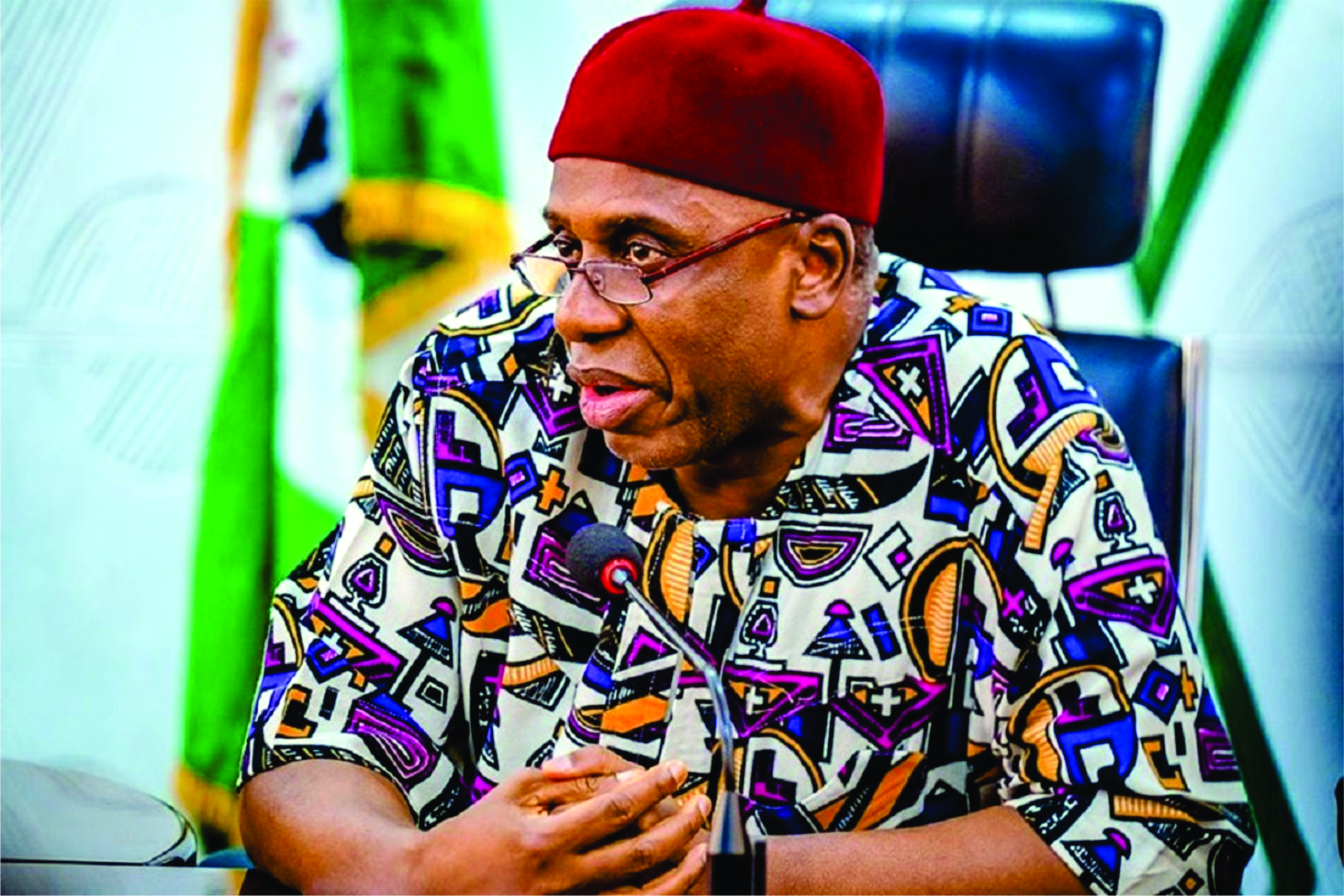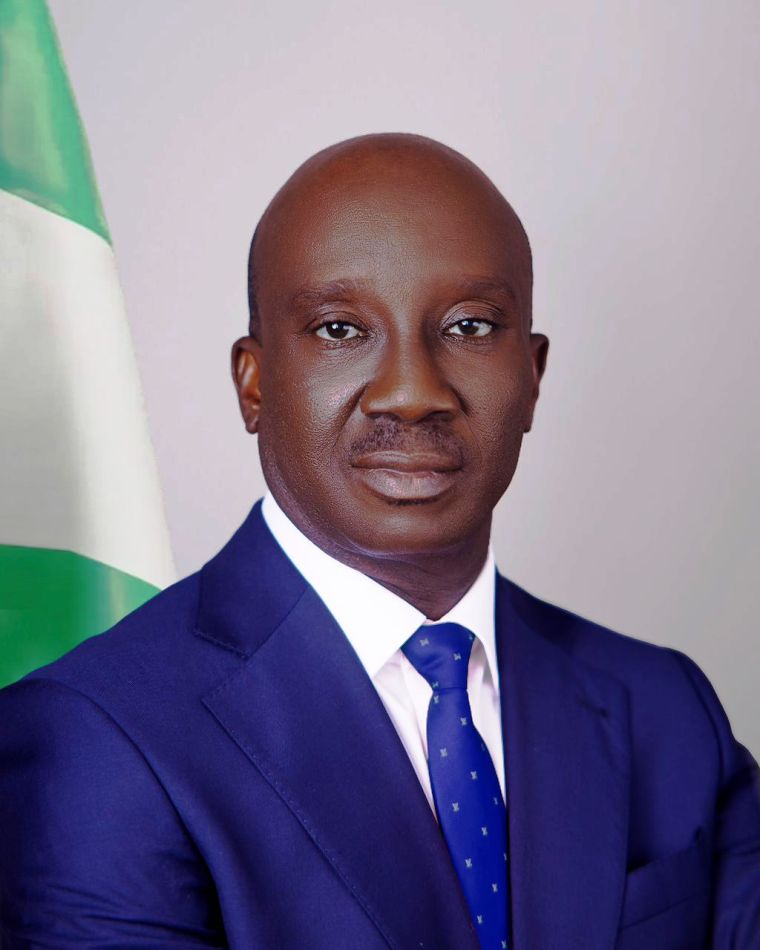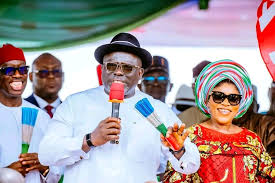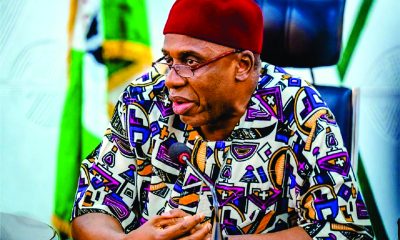Politics
How Obama’ll Pocket 271 Electoral Votes To Win US Poll
President Barack Obama is poised to eke out a victory in the race for the 270 electoral votes needed to win re-election, having beaten back Republican Mitt Romney’s attempts to convert momentum from the debates into support in all-important Ohio, according to an Associated Press analysis a week before Election Day.
While the Democratic incumbent has the upper hand in the electoral vote hunt, Romney has pulled even, or is slightly ahead, in polling in a few pivotal states, including Florida and Virginia. The Republican challenger also appears to have the advantage in North Carolina, the most conservative of the hotly contested nine states that will determine the winner.
While in a tight race with Obama for the popular vote, Romney continues to have fewer state-by-state paths than Obama to reach 270. Without Ohio’s 18 electoral votes, Romney would need last-minute victories in nearly all the remaining up-for-grabs states and manage to pick off key states now leaning Obama’s way, such as Iowa or Wisconsin.
Analysis shows that Obama probably would win with at least 271 electoral votes from 21 states, including Ohio, Wisconsin and Iowa, and the District of Columbia. Romney seems on track for 206 from 23 states, including North Carolina. Obama won that state in 2008 and campaigned aggressively there this year. But Obama’s team acknowledges it is the most difficult state for him to win, and he’s paid less attention to it recently.
Colorado, Florida, Nevada, New Hampshire and Virginia, with a combined 61 votes at stake, could go either way.
“I’m counting on Iowa! Iowa may be the place that decides who the next president is!” Romney said on one of two visits to the state last week. In Ohio last week, a hoarse Obama reminded a Cleveland audience near the end of a six-state marathon: “I need you, Ohio. America needs you, Ohio.”
Romney is banking on what his supporters say is late momentum. Obama is betting that his aggressive effort to register and lock in early voters, mainly Democratic-leaning younger and minority voters, will give him an insurmountable advantage heading into Election Day, when more Republicans typically vote than Democrats.
About 35 percent of voters are expected to cast their ballots before November. 6, either in person or by mail. More than 5 million people already have voted. No votes will be counted until November 6, but some states report the party affiliation of people who have voted. Democrats have the edge in Iowa, Nevada and North Carolina, according to state figures and data collected by the United States Elections Project at George Mason University. Republicans have the early edge in Colorado.
Obama, who won in 2008 in places where Democrats had not for a generation, continues to have several routes to electoral victory. His easiest: win Ohio, Iowa and Wisconsin, which are leaning his way. He could keep the White House with victories in Ohio, Wisconsin and Nevada. If he loses Ohio, he could prevail by sweeping New Hampshire, Iowa, Wisconsin, Nevada and Colorado.
Romney has fewer options. He must carry Florida and Virginia, where Republicans are feeling good about his standing, as well as wrest control of Ohio, and then also win Nevada, Colorado or New Hampshire. If he loses Ohio, Romney must make up for the state’s 18 electoral votes by cutting his way through Obama-leaning territory.
At the top of that target list are Wisconsin, carried by Democrats in six straight presidential elections and where Obama has the edge, and Iowa, a perennial swing-voting state.
Ohio is a lynchpin for both candidates.
Obama was in strong standing in the state before the three presidential debates. But Romney’s strong performance in the debates helped him gain ground. But Republicans and Democrats alike now say that any momentum Romney had in Ohio from those debates has run its course, and the state gain is leaning toward Obama. New public polls show a tight race.
Operatives in both parties point to the last debate six days ago, and Obama’s criticism of Romney’s opposition to the automotive industry bailout. They say the criticism was effective in branding Romney as out of touch with working-class voters in a state whose manufacturing economy relies heavily on the car and auto parts industries.
The president started running a new TV ad in the state assailing Romney’s position on the aid. Obama’s internal polling in Ohio has shown a slight increase in support from white, working-class voters, an important part of Ohio’s largely blue-collar electorate.
“That is a killer,’” Tad Devine, a top aide to 2004 and 2000 Democratic nominees, said of the heat Romney is taking for his bailout position. “And it’s going to have the biggest impact in the decisive state in the outcome of the election.”
Out of necessity, Romney is refusing to cede ground in Ohio, where no Republican has lost and then gone on to win the presidency. He hunkered down in the state for two days last week, and running mate Paul Ryan headlined eight events in the state over the weekend. The impending storm that’s set to hit the East Coast led Romney to cancel Virginia campaigning on Sunday and join Ryan in Ohio.
In Ohio alone, Romney and allied groups were spending nearly $9 million on television ads, compared with Obama and his allies’ $6 million, and showed no signs of letting up in the final week.
Elsewhere, Obama is looking to stunt any Romney inroad with suburban women, a pivotal constituency, in Colorado and Virginia, by casting the Republican as an extremist on abortion and hammering him on his opposition to federal money for Planned Parenthood.
In Nevada, Romney is banking on the support of fellow Mormons, and noting the high unemployment and foreclosure rates, to overtake Obama. But the president’s team is appearing ever more confident of winning the state, partly because of the backing of a booming Hispanic population.
Florida, the biggest battleground prize with 29 electoral votes, is viewed by both sides as a tight. Democrats acknowledge that Romney’s standing has improved because of his debate performances and could move out of reach for Obama in the coming days.
Associated Press writer Julie Pace in Washington contributed to this report.
Politics
Why I Didn’t Support APC, Vote Tinubu In 2023 – Amaechi

Former Governor of Rivers State, Mr Rotimi Amaechi, has said he neither supported the All Progrssives Congress (APC) nor voted for President Bola Tinubu in 2023 because he believed that the president lacked capacity, adding that the opposition parties can remove him from power in 2027.
Speaking at the weekend during an event organised to mark his 60th birthday anniversary, Mr Amaechi said he met President Tinubu before the 2023 presidential election and told him that he would not work or vote for him.
Mr Amaechi said his decision not to back Tinubu’s presidential bid was based on “capacity” issue.
The former Minister of Transportation, however, said he would have pursued some of the policies of the present administration if he were president, adding that the gains of the policies have not trickled down to Nigerians because “the gains of those policies are in their private pockets”.
Mr Amaechi said he does not mind submitting to the opposition to oust President Tinubu as long as the interest of the nation is served.
“I met President Tinubu in Yola and I told him I would not work for you and I would not vote for you.
“Why I’m saying this? It’s because some people in Rivers State have been saying ‘he didn’t work for APC, he didn’t support Tinubu’. I told him in advance, before the election…because I was convinced that there was an issue of capacity.
“Some of us here who raised the issue of capacity are also the ones who vote on ethnic and religious basis or who spoil innocent or uneducated people who are poor to vote for people for ethnic or religious reasons. That’s why we are here.
“For us to position, if you want us to remove the man in power, we can remove him from this power. We want to submit to the opposition if the opposition can lead us out of this problem. And for the opposition to lead us out of this problem, we must agree to submit ourselves to the interests of the nation first before the interests of ourselves.”
Speaking to the theme of the event, “Weaponisation Of Poverty As A Means Of Underdevelopment: A Case Study Of Nigeria”, Mr Amaechi said Nigerian leaders did not care about the citizens, but only interested in amassing wealth.
He claimed that there is a conspiracy among the elites to afflict Nigerians with poverty.
“Let me tell you. No Nigerian leader cares for the poor, because they know that Nigerians can do nothing to them once they are in power. When Nigerians protested, the president announced an increase in the price of fuel because they know you cannot do anything.
“It’s a conspiracy of the elite. We don’t care for you; no Nigerian leader cares for you. And the reason is because you all do nothing. You protested, at the end of the protest, the president increased price of fuel because you’ll do nothing”, Mr Amaechi said.
Politics
Reps Propose Jail Term For Workplace Bribery

The House of Representatives is seeking a bill to impose a seven-year jail term or a fine of N5 million on anyone guilty of giving or receiving bribes in workplaces across the country.
Sponsored by Paul Nnamchi (Enugu East/Isi-Uzo Federal Constituency) and three others, the bill aims to curb bribery in both public and private workplaces.
‘A Bill for an Act to Provide Effective Deterrence and Consequences for Bribery in Workplaces,’ the bill will be debated when the House resumes on June 17, 2025.
It proposes tough penalties for bribery offences in government agencies, corporations, nongovernmental organisations, and other professional settings.
Under the proposed law, anyone who offers or gives a bribe “in cash, gifts, favours, or other benefits” to influence an official action will be liable, upon conviction, to a fine of not less than N5m or three times the value of the bribe, whichever is higher, and/or imprisonment for at least seven years.
The bill also proposes a stiffer penalty of a 10-year jail term and the same financial sanctions for anyone who solicits or receives a bribe.
In the case of public officials, it recommends dismissal from public service and a 15-year ban from holding elective or appointive office if convicted of bribery.
For corporate organisations, the bill proposes that those guilty of bribery will face a fine of not less than N100m, while their directors or officers responsible will be prosecuted and, if convicted, face a minimum of 10 years’ imprisonment.
Furthermore, companies convicted of workplace bribery may also lose their operating licences and face a 10-year ban from public procurement contracts.
Politics
Okpebholo Gifts Council Chairmen SUVs, Denies Interference With LG Funds

Edo State Governor, Senator Monday Okpebholo, has disclosed that his administration does not interfere with local government funds, a decision he said will enable the third tier of government to bring development to the grassroots.
Governor Okpebholo stated this in Benin City, on Saturday, at the presentation of new vehicles to chairmen of local governments, while accusing former Governor Godwin Obaseki for drawing the state backwards by denying council chairmen appropriate regard and recognition, a situation his administration had come to remedy.
He added that the new Sport Utility Vehicles (SUVs) vehicles were being given to the chairpersons of local governments to aid effective service delivery.
“I want to thank God for making today possible as chairmen now have the privilege to drive brand new vehicles in the State. New things are beginning to happen in Edo State under the watch of President Bola Ahmed Tinubu.
”Edo will experience more development even as we compete with Lagos, Abuja, and other States of the Federation. The vehicles commissioned today are not for the private use of the local government chairmen but for the development of the people at the grassroots. I will monitor you to ensure the right thing is done.
”I know how much you are receiving in the councils, and we will measure your success rate if it is commensurate with what you are receiving. My administration has not interfered with your funds and resources,” he said.
Commissioner for Local Government, Community and Chieftancy Affairs, Hon. Lucky Eseigbe, commended the governor for not interfering with local government funds.
Hon. Eseigbe noted that the freedom given to the chairmen had resulted in positive developments across the 18 local government areas of Edo State.
“This is the first time in the history of the State that 2025 models of SUV vehicles are purchased for local government chairmen. These brand new vehicles presented to local government chairmen are to enable them to carry out their responsibilities
“The 18 local government chairmen are developing the State as blocks of classrooms, healthcare centers, roads are being built along other infrastructural development in the council areas,” he said.
Governor Okpebholo was accompanied by his deputy, Rt. Hon. Dennis Idahosa and other top government officials to commission the vehicles at the State Secretariat in Benin City.
-
Business2 days ago
‘Agriculture, Vital Part Of Rivers Economy’
-

 Niger Delta2 days ago
Niger Delta2 days agoOborevwori Promises Enhanced Transformational Leadership In Delta
-

 News2 days ago
News2 days agoRivers @ 58: Return To Path Of Peace, Forgiveness, Ibas Tells Rivers Stakeholders
-

 Politics2 days ago
Politics2 days agoEx-Dep Speaker Hails Tinubu, Wike Over FCT Dev
-

 City Crime2 days ago
City Crime2 days agoInfrastructural Decay Hinders Conduct Of 2025 JAMB, WASCE Exams – Obi
-

 Politics2 days ago
Politics2 days agoWhy I Didn’t Support APC, Vote Tinubu In 2023 – Amaechi
-

 Niger Delta2 days ago
Niger Delta2 days agoPolice Neutralise Three Kidnap Suspects In Delta
-

 News2 days ago
News2 days agoTinubu’s Intervention Saved Rivers From Anarchy -Fubara

